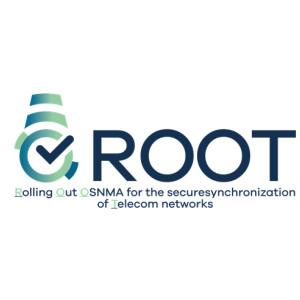 \
&
Contact us
\
&
Contact us
 \
&
Contact us
\
&
Contact us
Published on | 7 months ago
Programmes Digital, Industry & SpaceWith the (draft) work programme for 2025, being officially pre-published it’s time to provide you with a high-level overview of what to find in this 340 pages long document.
The submission deadline for all call topics will most likely be October 2nd. The topics are expected to be published on the Funding and Tenders Portal by May 22, when the call topics will open.
For more information and an opportunity to ask questions to the responsible units and project officers, we refer you to the public info days (online). Also don’t forget about the brokerage events for helping you find consortia to join or to promote your project idea(s).
Cluster 4 groups Digital, Industry & Space topics which is quite diverse. Therefore it's subdivided in 6 destinations (~ topic groups, content domeins), of which 2 are more oriented towards industrial topics (1 & 2), 3 are more focussed on digital topics (3,4 & 6) and one is about space topics (5). Of course there are no clear hard boundaries between the domains, so make sure to check everything when looking for interesting call topics.
Destination 1 - Climate-neutral, circular and digitised industrial value chains
Focuses on supporting competitive European industry through the twin green and digital transition. This involves developing new technologies, boosting manufacturing processes for net-zero solutions, and improving productivity.
Destination 2 - Raw materials, chemicals and innovative materials
Aims to strengthen EU's critical raw materials capacities and develop advanced materials that are safe and sustainable by design. This supports Europe's technological sovereignty and capacity for the twin transitions.
Destination 3 - Data services and AI
Supports the next stage of the data economy, focusing on developing technologies for privacy preservation, data compliance, and secure data exchanges. Aims to rebalance data and computing capacity across the cloud-to-edge continuum.
Destination 4 - Digital and emerging technologies
Ensures Europe's strategic autonomy in key technologies while preserving an open economy. Focuses on semiconductors, quantum technologies, and other digital capabilities critical for industry transformation.
Destination 6 - Human-centric innovation
Focuses on transforming user experience through virtual and extended realities for industry, entertainment, public services. It aims to create an R&I ecosystem combining sophisticated VR/XR optics, human-computer interaction, real-time computing, and application research.
Destination 5 - Space-Based Infrastructure
Addresses the development, deployment and use of global space-based infrastructure, services, applications and data to support EU's space program components.
You’ll see different types of calls. The main action types mentioned are:
Within Cluster 4, there are some partnerships active that cover a thematic domain. A full list with more details can be found on the NCP Flanders website on the Cluster4 page. Use the partnerships for a fast lane to consortium forming, detailed information and guiding advise. The partnerships covering topics in this 2025 Work Package are:
We offer news and event updates, covering all domains and topics of Horizon Europe, Digital Europe & EDF (and occasionally, for ongoing projects, Horizon 2020).
Stay informed about what matters to you.
By signing up, you can opt in for e-mail notifications and get access to
a personalised dashboard that groups all news updates and event announcements in your domain(s).
Only for stakeholders located in Flanders

The ROOT project obtained funding under Horizon 2020 topic ‘EGNSS applications fostering societal resilience and protecting the environment’. The project, which ran from November 2020 to July 2022, aimed to demonstrate the benefit of Galileo OSNMA signal to increase the robustness of critical telecom infrastructures.
The Flanders-based company Septentrio contributed substantially to completing this objective together with the other ROOT partners. The results of the project partially close a gap in the security of telecommunication networks dependent on satellite-derived time, with indirect benefits in curbing illegal attempts to disrupt network services.